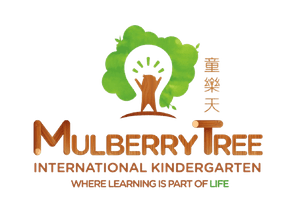
EYFS Curriculum
Early Years Foundation Stage
A child's first experiences of school are instrumental in shaping how they view learning. We seek to create a safe, caring and happy environment where a child believes that they are capable of anything. Our EYFS curriculum is designed to allow your child to discover interests and talents as well as equip them to become life-long learners.
Key Goals for EYFS Learners
Four themes underpin the learning and development that your child will take part in through the EYFS Curriculum which are:
- A Unique Child - Every child is a competent learner from birth and can be resilient, capable, confident and self-assured.
- Positive Relationships - Children learn to be strong and independent from a base of loving and secure relationships with parents and carers.
- Enabling Environments - The environment plays a key role in supporting and extending a child’s development and learning.
- Learning and Developing - children develop and learn in different ways and at different rates and all areas of learning and development are equally important.
Children learn and develop through opportunities to interact in positive relationships and enabling environments. There are certain characteristics of effective learning which help a child to grow and acquire knowledge. Playing and exploring, being involved in concentrating and thinking critically, are all essential requirements to support children’s learning across all areas. There are particular areas that are crucial for igniting children’s curiosity and enthusiasm for learning and for building their capacity to learn, form relationships and thrive.

1. Communication and Language
This area is divided into three areas.
These are :
‘Listening and Attention’,
‘Understanding’
‘Speaking’
We encourage children to become more confident when speaking and listening through engagement in a vast range of activities. Taking turns in conversation at all levels is encouraged. Staff support children to speak properly, use the correct tense and ensure that they understand the different themed based concepts.

2. Physical Development
This area encompasses ‘Moving and Handling’ and ‘Health and Self-Care’.
Children begin to show good control and coordination in large and small movements, confidently handling tools and equipment. Children learn about the importance of good health, physical exercise and good personal hygiene. Here at Mulberry Tree International Kindergarten, we have a variety of activities from Music and Movement to Yoga sessions to help facilitate their learning.

3. Personal, Social and Emotional Development
In this area, children are assessed on their ‘Self-Confidence and Self-Awareness’ as they try new experiences and cope with changes in their routine.
‘Managing Feelings and Behaviour’ means that children learn about acceptable codes of behaviour and how to work as a class and stay motivated as an individual. They learn to vocalise within the group and understand that their opinions are important and valued. ‘Making Relationships’ means that children have the opportunity to play cooperatively, take turns and share. Positive relationships are formed

4. Literacy
'Reading' and 'Writing'
Children learn the alphabet phonetically and are given opportunities to develop early writing skills leading to emergent writing and beyond.

5. Mathematics
‘Numbers’ and ‘Shape, Space and Measures’
Children learn to solve mathematical problems through exploration and involvement in a wide range of practical maths activities

6. Understanding the World
‘People and Communities’, ‘The World’ and ‘Technology’
Children bring their own experiences and knowledge to the setting. These experiences are discussed, built upon and extended through activities in the classroom. Here at Mulberry Tree International Kindergarten we also offer weekly field trips for our students to allow them to gain further experiences in their local communities and to extend their learning outside of the classroom.

Expressive Art and Design
Exploring and Using Media and Materials’ and ‘Being Imaginative’
make up the assessment criteria for this area of learning. Children are encouraged to be creative, without inhibitions and develop inbuilt skills that will support them throughout their lives.
Contact Us
© Copyright 2022









